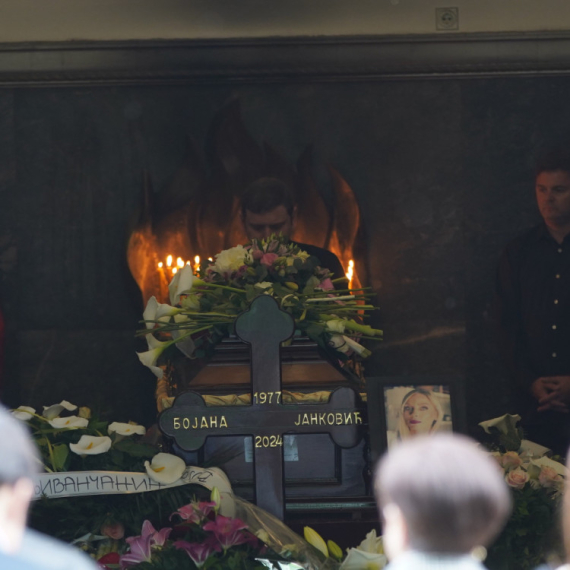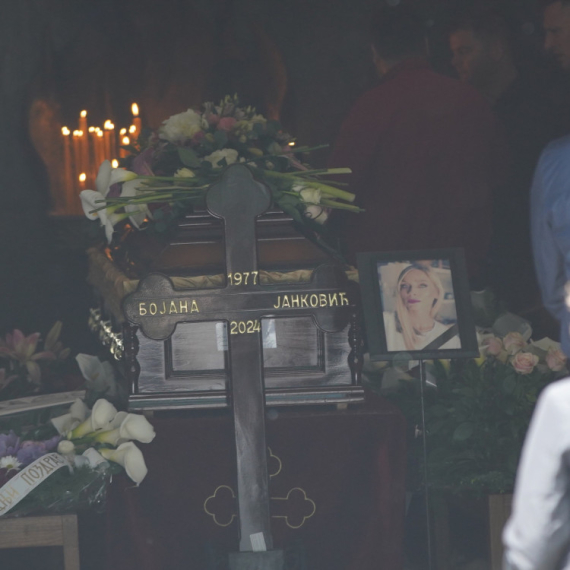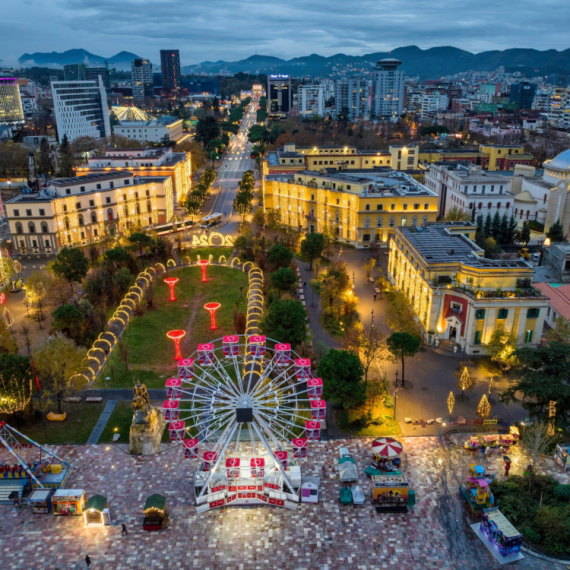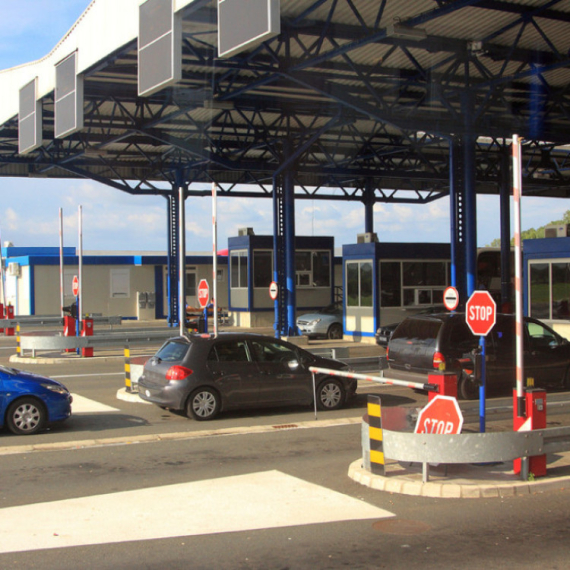AI: Roma were forced from shanty town
Amnesty International stated that Roma (Gypsies) were <a href="http://www.b92.net/eng/news/society-article.php?yyyy=2009&mm=08&dd=31&nav_id=61467" class="text-link" target= "_blank">forced to move</a> from their shanty town under the Gazela Bridge in Belgrade.
Thursday, 10.06.2010.
17:13

Amnesty International stated that Roma (Gypsies) were forced to move from their shanty town under the Gazela Bridge in Belgrade. The NGO added that adequate adequate accommodation at another location had not been provided. AI: Roma were forced from shanty town Amnesty International called on European institutions to put pressure on the city of Belgrade and the state government to secure adequate residences for the Roma. Belgrade Mayor Dragan Djilas said that he was disappointed with the AI report, adding that realistic approach was needed, along with insight into everything the city has done to improve the lives of the Roma population. AI's Sian Jones was quoted as saying that they would be “lobbying at the European Commission at the end of next week”, when its representatives discuss progress that Serbia has made in the process of its European integration. “We want the European Bank for Reconstruction and Development and the European Investment Bank to state that they will not pay the agreed money to Serbia until the housing conditions for the Roma community have been met completely.” “We want to prohibit the violent eviction of Roma, and it has been happening in Belgrade in front of infrastructure buildings, so we want to offer the Serbian state and government instruction on how to respect and preserve human rights,” Jones said. Noting that the construction of Corridor 10 depends on international money, Jones said that AI does not want to stop the development of the city, but that government must respect the rights of the Roma first. She said that the city has not been able to give the needed protection in order for the evictions to be carried out in a legal way, and that people knew that they had to move, but did not know when, where they will live and what will happen to them. “The fact that they were not informed when and where they were moving, there were no consultations, and they could not prepare for the move, take their things out, is one of the basic types of violations of human right,” the AI researcher said. The organization said that the Roma they interviewed told them that when they were moved from the settlement, they lost not only their homes, furniture, but also “their whole life”. Today, AI said, the Roma live in inhuman conditions, in hot containers. Some were given promised jobs, but some of those with jobs did not receive wages in months. Mayor Djilas reacted today by saying that he agreed that human rights should be respected. “We should be realistic and look at what has been done. The people (Roma) knew for two years that they would have to move from there… in a way, they could have chosen the location,” Djilas said. He said that while the current housing was not “the best available anywhere”, it is a lot better than what they had. “They received housing, furniture which most of them sold right away, they have sanitation, conditions for personal hygiene, electricity… they have heating, and everything is being paid for by the budget and the Belgrade citizens,” Djilas said, adding that previously, only 80 percent of the shanty town children went to school, and that now, 60 percent are getting an education. “We are fighting for every child,” Djilas said, adding that the city secured transport for the children and tutors, “since most of their parents could not help them with Serbian or math”. He said that the goal was to have the children finish school and find jobs so that they do not end up like their parents. “We'll continue to this in the future, we won't be engaging in declarative stories, printing of publications, we will engage in having the children finish school, be accepted by their peers, fight to get them jobs,” Djilas was quoted. He also welcomed all those who wished to help with these goals, but added that there would be no cooperation “with those who write various statements disconnected from reality for big salaries and fees”. Djilas also said that AI should have consulted with Belgrade before writing its report on the situation. The Roma from the ramshackle settlement that was known as the Cardboard City were relocated in August 2009, in order to make room for the reconstruction works on the bridge. A file photo of a Roma child from the dismantled Gazela settlement (FoNet)
AI: Roma were forced from shanty town
Amnesty International called on European institutions to put pressure on the city of Belgrade and the state government to secure adequate residences for the Roma.Belgrade Mayor Dragan Đilas said that he was disappointed with the AI report, adding that realistic approach was needed, along with insight into everything the city has done to improve the lives of the Roma population.
AI's Sian Jones was quoted as saying that they would be “lobbying at the European Commission at the end of next week”, when its representatives discuss progress that Serbia has made in the process of its European integration.
“We want the European Bank for Reconstruction and Development and the European Investment Bank to state that they will not pay the agreed money to Serbia until the housing conditions for the Roma community have been met completely.”
“We want to prohibit the violent eviction of Roma, and it has been happening in Belgrade in front of infrastructure buildings, so we want to offer the Serbian state and government instruction on how to respect and preserve human rights,” Jones said.
Noting that the construction of Corridor 10 depends on international money, Jones said that AI does not want to stop the development of the city, but that government must respect the rights of the Roma first.
She said that the city has not been able to give the needed protection in order for the evictions to be carried out in a legal way, and that people knew that they had to move, but did not know when, where they will live and what will happen to them.
“The fact that they were not informed when and where they were moving, there were no consultations, and they could not prepare for the move, take their things out, is one of the basic types of violations of human right,” the AI researcher said.
The organization said that the Roma they interviewed told them that when they were moved from the settlement, they lost not only their homes, furniture, but also “their whole life”.
Today, AI said, the Roma live in inhuman conditions, in hot containers. Some were given promised jobs, but some of those with jobs did not receive wages in months.
Mayor Đilas reacted today by saying that he agreed that human rights should be respected.
“We should be realistic and look at what has been done. The people (Roma) knew for two years that they would have to move from there… in a way, they could have chosen the location,” Đilas said.
He said that while the current housing was not “the best available anywhere”, it is a lot better than what they had.
“They received housing, furniture which most of them sold right away, they have sanitation, conditions for personal hygiene, electricity… they have heating, and everything is being paid for by the budget and the Belgrade citizens,” Đilas said, adding that previously, only 80 percent of the shanty town children went to school, and that now, 60 percent are getting an education.
“We are fighting for every child,” Đilas said, adding that the city secured transport for the children and tutors, “since most of their parents could not help them with Serbian or math”.
He said that the goal was to have the children finish school and find jobs so that they do not end up like their parents.
“We'll continue to this in the future, we won't be engaging in declarative stories, printing of publications, we will engage in having the children finish school, be accepted by their peers, fight to get them jobs,” Đilas was quoted.
He also welcomed all those who wished to help with these goals, but added that there would be no cooperation “with those who write various statements disconnected from reality for big salaries and fees”.
Đilas also said that AI should have consulted with Belgrade before writing its report on the situation.
The Roma from the ramshackle settlement that was known as the Cardboard City were relocated in August 2009, in order to make room for the reconstruction works on the bridge.






















































Komentari 2
Pogledaj komentare